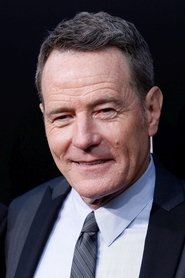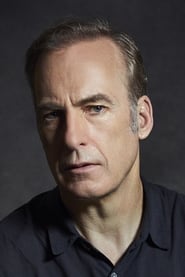
Ask Your Own Question
What is the plot?
The episode "Fly" begins in the dimly lit meth lab where Walter White and Jesse Pinkman are working. Walter is obsessively focused on a fly that has entered the lab, which he believes poses a significant threat to the purity of their product. The fly buzzes around, distracting Walter from his work. He becomes increasingly agitated, insisting that they must eliminate the fly to maintain their high standards of meth production.
Jesse, on the other hand, is more laid-back about the situation. He tries to humor Walter, but Walter's fixation on the fly grows more intense. Walter explains that the presence of the fly could contaminate their entire batch, and he is determined to catch it. This obsession reveals Walter's deep-seated need for control and perfection in his life, especially as he grapples with the chaos surrounding him.
As the episode progresses, Walter and Jesse engage in a series of discussions while trying to catch the fly. Walter reveals his frustrations about his life, including his cancer diagnosis and the moral compromises he has made. Jesse listens, but he is also preoccupied with the fly, which continues to evade their attempts to catch it. The dynamic between the two characters highlights their contrasting approaches to their situation: Walter's intense seriousness versus Jesse's more relaxed demeanor.
Walter eventually decides to take a more aggressive approach to catch the fly. He sets up a makeshift trap using a jar and some bait. However, his efforts are met with failure, and the fly continues to elude him. This failure frustrates Walter further, leading to a moment of vulnerability where he admits to Jesse that he feels like he is losing control over his life and his business.
In a moment of desperation, Walter becomes increasingly erratic. He starts to lash out at Jesse, blaming him for the fly's presence and for the problems in their operation. Jesse, feeling the weight of Walter's anger, tries to defend himself but ultimately becomes more passive, allowing Walter to vent his frustrations. This confrontation reveals the underlying tension in their partnership, as Walter's need for control clashes with Jesse's more laid-back attitude.
As the night wears on, Walter and Jesse continue their attempts to catch the fly, but their efforts are fruitless. Walter's obsession begins to take a toll on him, and he becomes more introspective. He reflects on his choices and the consequences of his actions, revealing a deeper layer of his character. Jesse, meanwhile, tries to lighten the mood with jokes, but Walter's seriousness dampens the atmosphere.
In a pivotal moment, Walter finally manages to catch the fly in a jar. However, instead of feeling triumphant, he is struck by a wave of realization about the futility of his obsession. He acknowledges that the fly is a mere distraction from the larger issues in his life, including his cancer and the moral decay of his choices. This moment of clarity leads to a brief reconciliation between Walter and Jesse, as they share a moment of understanding about their struggles.
The episode concludes with Walter and Jesse sitting in silence, reflecting on the events of the night. The fly, which initially represented a minor annoyance, becomes a symbol of Walter's internal battles and the chaos that surrounds their lives. The tension between them remains, but there is a sense of shared experience that hints at a deeper bond forged through their struggles. The episode ends without any significant resolution, leaving the characters in a state of uncertainty as they continue to navigate their tumultuous lives.
What is the ending?
In the ending of "Fly," Walter White and Jesse Pinkman are trapped in the meth lab, consumed by their obsessive pursuit of perfection. Walter's fixation on a fly, which he believes contaminates their product, leads to a tense confrontation between him and Jesse. After a series of escalating arguments and moments of introspection, Walter ultimately kills the fly, symbolizing his struggle for control. The episode concludes with Walter reflecting on his actions, revealing the emotional toll of his choices, while Jesse is left feeling disillusioned and confused.
As the episode unfolds, we find ourselves in the sterile environment of the meth lab, where Walter White is obsessively trying to eliminate a fly that has infiltrated their workspace. The fly becomes a symbol of Walter's deteriorating mental state and his need for control in a chaotic world. The episode opens with Walter, visibly agitated, pacing around the lab, his eyes darting to the fly buzzing around. He is determined to eradicate it, believing that its presence could ruin their entire batch of meth.
Jesse Pinkman enters the scene, groggy and confused, having just woken up. He is initially dismissive of Walter's obsession, but as Walter explains the importance of maintaining purity in their product, Jesse begins to understand the gravity of the situation. Walter's fixation on the fly escalates, leading to a series of frantic attempts to catch it. The tension between the two men grows as Walter's frustration mounts, revealing his deeper anxieties about their operation and his own life.
As the night progresses, the conversation shifts from the fly to more personal topics. Walter reveals his feelings of guilt and regret over the choices he has made, particularly regarding his family and his descent into the drug trade. Jesse, in turn, opens up about his own struggles and feelings of inadequacy. The dialogue is charged with emotion, showcasing the complex relationship between the two characters. Walter's authoritative demeanor clashes with Jesse's vulnerability, creating a palpable tension in the air.
In a moment of desperation, Walter finally manages to corner the fly and, in a fit of rage, kills it. This act serves as a cathartic release for Walter, but it also leaves him feeling hollow. The fly, which had represented his obsession and the chaos in his life, is now dead, yet Walter is left to confront the reality of his actions and the consequences they carry. Jesse watches, bewildered by Walter's emotional turmoil, and the moment underscores the growing rift between them.
The episode concludes with Walter standing alone in the lab, reflecting on the events that have transpired. He is left with a sense of emptiness, realizing that his quest for perfection has come at a significant cost. Jesse, meanwhile, is left feeling disillusioned, grappling with the weight of their choices and the direction their lives have taken. The final moments capture the emotional fallout of their night in the lab, highlighting the internal conflicts that both characters face as they navigate their tumultuous partnership in the drug trade.
Is there a post-credit scene?
In the episode "Fly" from Season 3 of Breaking Bad, there is no post-credit scene. The episode concludes without any additional footage or scenes after the credits roll. The focus remains solely on the intense and claustrophobic interaction between Walter White and Jesse Pinkman as they grapple with their personal demons and the symbolic presence of the fly in the lab. The episode is notable for its deep character exploration rather than plot advancement, emphasizing the psychological tension between the two characters.
What is the significance of the fly in the episode?
The fly symbolizes Walt's obsession with control and perfection. It represents the chaos in his life and the imperfections in his meth production. Walt's fixation on the fly reflects his internal struggle and deteriorating mental state.
How does the episode explore the relationship between Walt and Jesse?
In 'Fly', the dynamic between Walt and Jesse is tested as they are forced to confront their issues in a confined space. Walt's authoritative demeanor clashes with Jesse's frustration, revealing their complex mentor-student relationship and the strain caused by their shared experiences.
What does Walt's behavior towards the fly reveal about his mental state?
Walt's obsessive behavior towards the fly indicates his increasing paranoia and anxiety. His inability to focus on anything other than the fly showcases his deteriorating mental health and the overwhelming guilt he feels over his actions, particularly regarding Jane's death.
How does the episode depict the theme of isolation?
The entire episode takes place in the lab, emphasizing the physical and emotional isolation of both Walt and Jesse. This confinement forces them to confront their personal demons and the consequences of their choices, highlighting their loneliness in the drug trade.
What role does the dialogue play in the development of the characters?
The dialogue in 'Fly' is crucial for character development, as it reveals Walt's manipulative tendencies and Jesse's vulnerability. Their conversations oscillate between tension and moments of vulnerability, showcasing their complex relationship and the emotional weight of their shared experiences.
Is this family friendly?
"Fly," the tenth episode of Season 3 of Breaking Bad, is not considered family-friendly and contains several elements that may be objectionable or upsetting for children or sensitive viewers.
-
Intense Themes: The episode delves into themes of obsession, guilt, and the psychological toll of criminal activity, which may be heavy for younger audiences.
-
Strong Language: There are instances of strong language throughout the episode that may not be suitable for children.
-
Tension and Anxiety: The episode creates a tense atmosphere, focusing on the characters' emotional struggles, which could be unsettling for sensitive viewers.
-
Substance Abuse: There are references to drug use and the consequences of addiction, which may be inappropriate for younger viewers.
-
Violence: While there is no graphic violence in this episode, the underlying tension and the characters' emotional states can evoke a sense of unease.
Overall, the episode's focus on psychological conflict and moral dilemmas, combined with its mature language and themes, makes it more suitable for adult audiences.


















